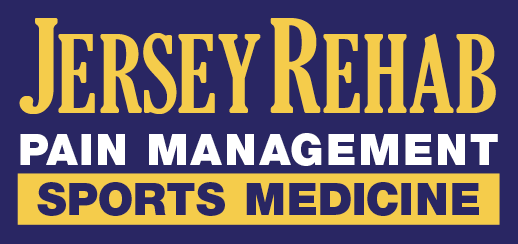Neuropathic Pain Uncovered: Emerging Research and Innovations in Treatment
Neuropathic pain, characterized by a burning, stabbing, or shooting sensation, can be a debilitating condition that significantly impairs the quality of life. Unlike acute pain, which serves as a warning signal for injury, neuropathic pain arises from damage or dysfunction in the nervous system. It is often associated with chronic conditions such as diabetes, multiple sclerosis, or post-herpetic neuralgia. Traditional treatments like painkillers and nerve blocks can offer relief, but they don’t always address the underlying cause. Fortunately, emerging research and innovations are offering new hope for those living with neuropathic pain.
Understanding Neuropathic Pain
Neuropathic pain results from abnormal processing of sensory signals by the nervous system. When nerves are damaged, they can send incorrect signals to the brain, leading to sensations of pain even in the absence of an external stimulus. Common causes of neuropathic pain include:
- Diabetic Neuropathy: High blood sugar levels over time can damage nerves, particularly in the extremities.
- Post-Herpetic Neuralgia: Pain that persists after a shingles infection.
- Cancer and Chemotherapy: Nerve damage can occur as a result of tumors pressing on nerves or as a side effect of chemotherapy.
- Spinal Cord Injuries: Damage to the spinal cord can disrupt the normal signaling pathways of the nervous system.
- Autoimmune Diseases: Conditions like multiple sclerosis can cause the immune system to attack nerve fibers, leading to neuropathic pain.
Emerging Research in Neuropathic Pain
In recent years, researchers have been focusing on understanding the mechanisms behind neuropathic pain and developing targeted treatments. Here are some promising areas of research:
1. Gene Therapy
Gene therapy holds significant promise in addressing the root cause of neuropathic pain. Scientists are exploring ways to modify specific genes involved in pain signaling to reduce or eliminate the perception of pain. Early studies have shown that gene therapy can potentially reduce inflammation and promote nerve repair, offering long-term relief.
2. Regenerative Medicine
Regenerative medicine, including stem cell therapy, aims to repair damaged nerves by promoting the growth of new, healthy nerve tissue. Preclinical trials have demonstrated that stem cell therapy can improve nerve function and reduce pain in animal models. While still in the experimental stage, clinical trials in humans are underway, and the results so far are promising.
3. Neurostimulation Devices
Neurostimulation devices, such as spinal cord stimulators and transcutaneous electrical nerve stimulation (TENS) units, have been used for years to manage pain. However, advancements in technology have led to more precise and effective devices. For instance, high-frequency spinal cord stimulation and dorsal root ganglion (DRG) stimulation show superior results in pain reduction compared to traditional methods.
4. Targeted Pharmacological Agents
Traditional painkillers like opioids are often ineffective for neuropathic pain and come with significant risks, including addiction. Researchers are now developing targeted drugs that specifically modulate the nerve receptors involved in pain signaling. For example, drugs targeting sodium and calcium channels in nerve cells are being tested for their ability to reduce pain without affecting other bodily functions.
5. Biomarker-Based Diagnostics
One of the challenges in treating neuropathic pain is its subjective nature. Biomarker-based diagnostics aim to provide objective measurements of nerve damage and pain levels, allowing for more accurate diagnosis and personalized treatment plans. These biomarkers can help clinicians track the effectiveness of treatments and adjust therapies accordingly.
Innovations in Treatment
While research is paving the way for new therapies, several innovations are already making a difference in the lives of patients:
1. Virtual Reality Therapy
Virtual reality (VR) therapy is being explored as a non-invasive way to manage chronic pain. By immersing patients in a virtual environment, VR can distract the brain from pain signals and promote relaxation. Early trials have shown that VR therapy can significantly reduce pain intensity and improve mood.
2. Nerve Growth Factor (NGF) Inhibitors
NGF plays a crucial role in the development of neuropathic pain. New drugs that inhibit NGF are being tested for their ability to prevent and treat pain. Clinical trials have shown that NGF inhibitors can reduce pain in conditions like osteoarthritis and diabetic neuropathy.
3. Mind-Body Therapies
Mind-body therapies, such as mindfulness meditation, cognitive-behavioral therapy (CBT), and biofeedback, are gaining traction as effective complementary treatments for neuropathic pain. These therapies help patients manage pain by altering their perception of it and reducing stress, which can exacerbate pain symptoms.
4. Diet and Lifestyle Interventions
Emerging evidence suggests that diet and lifestyle changes can play a significant role in managing neuropathic pain. Anti-inflammatory diets rich in omega-3 fatty acids, antioxidants, and low glycemic index foods can help reduce inflammation and improve nerve health. Regular exercise, tailored to a patient’s abilities, can also improve nerve function and overall well-being.
Looking Ahead: A Holistic Approach to Pain Management
The future of neuropathic pain treatment lies in a multidisciplinary approach that combines medical, technological, and psychological interventions. Personalized medicine, which tailors treatment based on a patient’s genetic makeup and specific condition, is likely to become the gold standard. Additionally, greater emphasis on patient education and self-management strategies can empower individuals to take control of their pain and improve their quality of life.
In conclusion, neuropathic pain is a complex and challenging condition, but emerging research and innovations in treatment are offering new hope. From gene therapy and regenerative medicine to advanced neurostimulation devices and mind-body therapies, the future looks promising for those struggling with chronic pain.
If you or a loved one are dealing with neuropathic pain, the experienced team at Jersey Rehab can help. With a personalized approach to pain management and access to the latest treatments, we are dedicated to helping you regain your quality of life. Contact us today to learn more about our services and start your journey toward pain relief.

